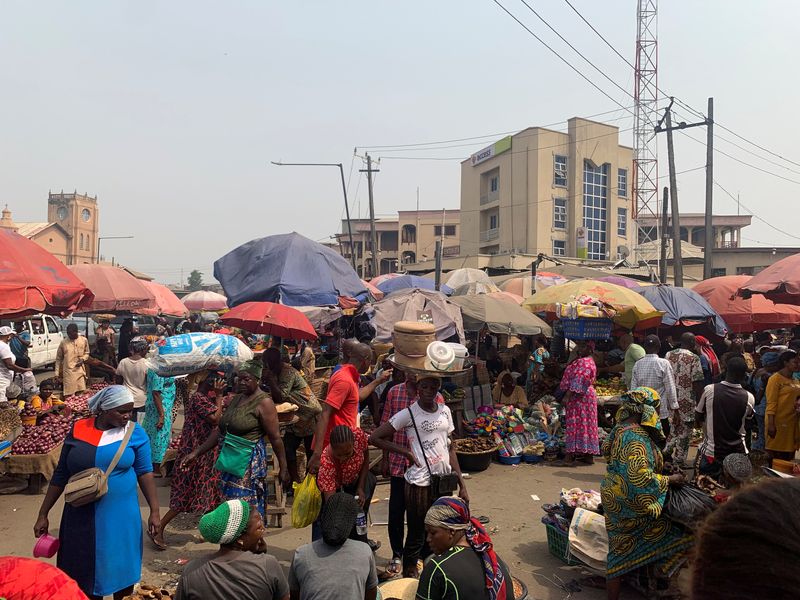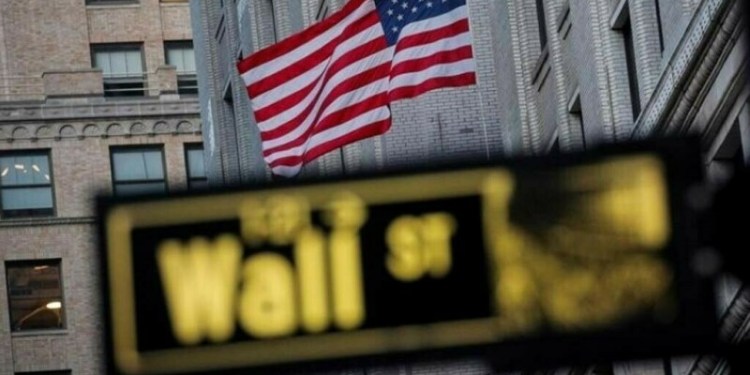
© Reuters. FILE PHOTO: People shop at a fresh food market in Oyingbo, Lagos, Nigeria December 17, 2021. Picture taken December 17, 2021. REUTERS/Nneka Chile/File Photo
By Chijioke Ohuocha and Elisha Bala-Gbogbo
ABUJA (Reuters) – Nigeria’s central bank hiked interest rates by 4 percentage points on Tuesday, as trade unions protested over soaring food and fuel prices that have increased hardship in Africa’s biggest economy.
Central Bank of Nigeria Governor Olayemi Cardoso said the rise in the bank’s main lending rate to 22.75% from 18.75% was needed to arrest inflation, which has soared to its highest in almost three decades.
“The previous policy rate hikes have slowed the rise in inflationary pressure but not to a desirable extent. Members concluded that inflation could become more persistent in the medium term and pose more regulatory challenges if not effectively anchored,” Cardoso told a news conference.
He said all 12 members of the Monetary Policy Committee participated in the rate decision, which was the first since Cardoso took office last September.
Economists had predicted a big hike but were divided on the size the central bank would go for.
Nigeria’s international dollar bonds rose as Cardoso spoke, having fallen in price earlier in the day. The 2029 maturity was up the most, by about 0.3 cents to 95.5 cents, according to Tradeweb data.
Inflation has been spurred by bold but unpopular reforms implemented by President Bola Tinubu in his first year in charge, including ending a costly fuel subsidy and devaluing the local naira currency twice.
Tinubu has defended those reforms, saying they were needed to boost growth and attract investment, but they have prompted public anger and, in some cases, desperation.
On Friday, some people were killed and others injured when authorities ran out of stock at a food distribution centre in Lagos, causing a stampede, the Nigeria Customs Service said.
“The crowd became desperate and charged through our barricades in search of rice bags inside emptied containers,” it said in a statement, adding that more than 5,000 people had showed up for the distribution.
The government this week approved the immediate resumption of cash transfers to 12 million vulnerable households, but labour unions want Tinubu’s administration to go further.
“The removal of the petroleum subsidy and the dollar issue have caused untold hardship,” said Ibrahim Tajo Siraj, chair of a union of academic staff in the northern city of Kano, who joined a protest against the government’s economic policies on Tuesday.
Source: Investing.com





























